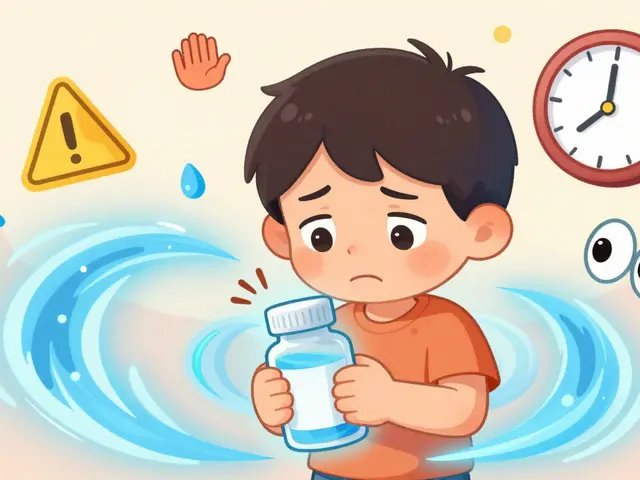Metoclopramide: Uses, Side Effects, and What You Need to Know
When your stomach won’t move right and nausea won’t let up, metoclopramide, a prescription medication that speeds up stomach emptying and blocks nausea signals in the brain. Also known as Reglan, it’s one of the most common drugs doctors turn to for acute nausea, gastroparesis, and reflux that won’t quit. It doesn’t just mask symptoms—it helps your body do what it’s supposed to: move food along. But it’s not a gentle fix. Side effects like drowsiness, restlessness, and even muscle spasms can show up fast, especially if you take it longer than recommended.
Metoclopramide works by boosting acetylcholine in your gut, which tightens the muscles that push food from stomach to intestines. That’s why it’s used for gastroparesis, a condition where the stomach empties too slowly, often after diabetes or surgery, and for nausea caused by chemo, migraines, or even post-surgery. But it’s not magic. If you’re on GLP-1 agonists, like Ozempic or Wegovy, which also slow digestion and cause nausea, metoclopramide might help—but only for a short time. Long-term use? That’s where risks climb. The FDA warns against using it beyond 12 weeks because of a rare but serious movement disorder called tardive dyskinesia, which can stick around even after you stop taking it.
People often mix up metoclopramide with other anti-nausea pills like ondansetron or promethazine. But they work differently. Ondansetron targets serotonin in the brain, while metoclopramide gets the stomach moving. That’s why some patients find one works when the other doesn’t. If you’ve tried dietary fixes, ginger, or even folic acid, which helps reduce nausea from methotrexate but won’t touch gastroparesis—you might need something that acts on the muscle, not just the signal.
What you’ll find here isn’t just a list of facts. It’s real-world insight from people who’ve used metoclopramide, doctors who’ve seen what happens when it’s misused, and studies that show how it stacks up against other options. You’ll learn when it helps, when it doesn’t, how to spot early warning signs of side effects, and what to ask your doctor before you refill that prescription. No fluff. Just what you need to make a smart call—before your next dose.




